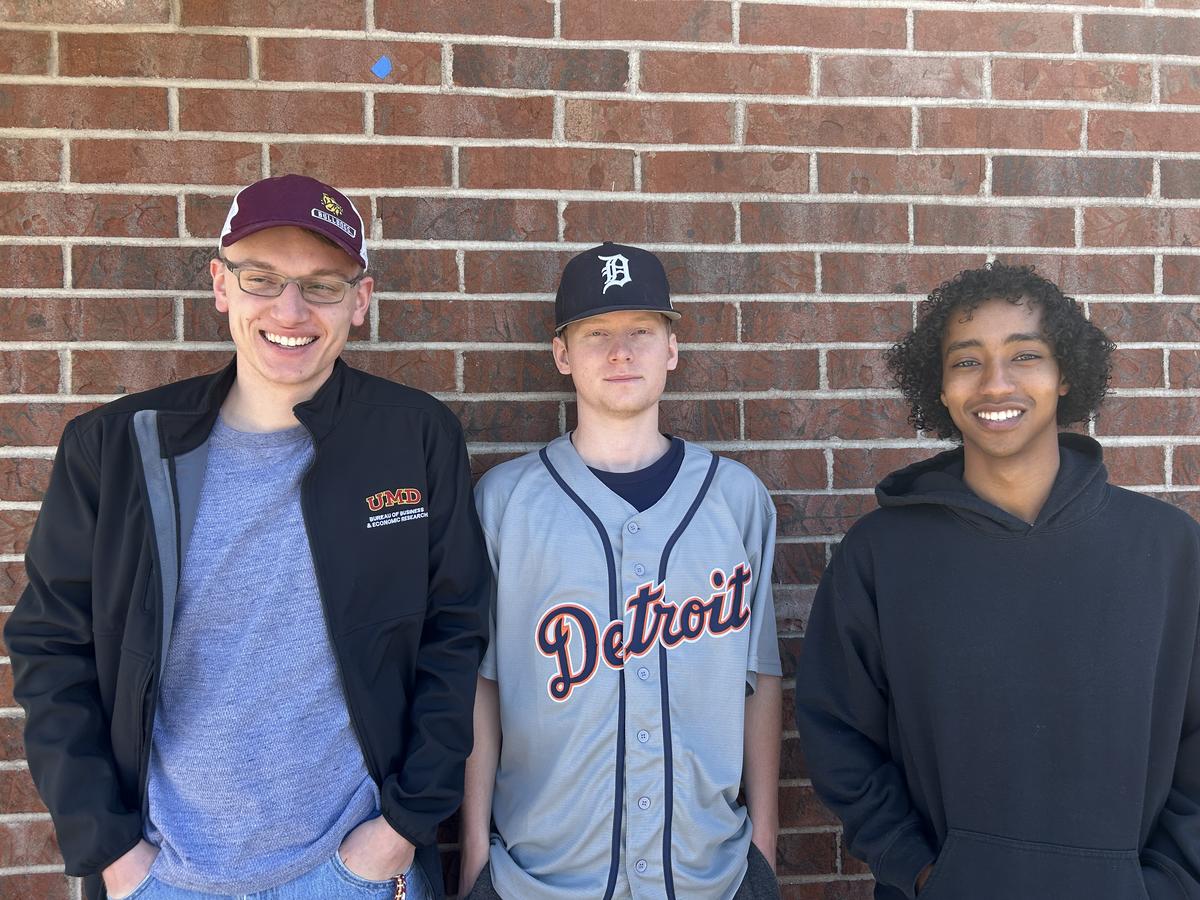BBER UGRAs are immersed in projects, learning all aspects of research analyses and reports. They truly gain an understanding of real-world projects through their hands-on work—learning skills related to economic research and technical writing.
We asked our graduating seniors a few questions about their favorite projects and what they learned. Their replies are below.
May Graduates: Avery Wendinger, Mahad Ahmed, and Mitchell Bakken
Which project was your best experience?
A. My best experience was with a project looking into a new wood product technology and its feasibility for production and use in Minnesota. I was able to work on this specific project for essentially my entire time at the BBER, and seeing it come to fruition towards the end of my time here was extremely rewarding.
MA. I would say that the True North Goodwill project was my best experience. I spent time doing research for the literature review and writing for the report. I also spent some time pulling data for the research. The best part was being able to present this project at UMD’s Undergraduate Research Showcase.
MB. The True North Goodwill project was my best experience. I was more involved with this project compared with other projects and gathered and analyzed most of the data. There were multiple instances where I noticed an issue and adjusted accordingly.
Which project was the most difficult/challenging?
A. The project that was my best experience was also easily the most challenging. We combined data from many sources (such as interviews, literature, government agencies) and had to find ways to logically organize and present it, which was not easy in the slightest way. Finding how to best explain what we had found without either repeating things or "putting the cart before the horse" was an interesting challenge. But the result was a well put-together finished report that was well worth the struggle.
MA. The project I felt was most difficult for me was also True North Goodwill. I spent a lot of time doing the literature review. Though I learned a lot, there were just so many reports and studies that I read through and categorized, it became tedious.
MB. The Northland Reliability Project was the most challenging for me. This project had so many variables that affected the data that would then go into the IMPLAN software. Even in IMPLAN, there were many expenses that could fit into multiple industries or didn't seem to fit into any industry option. This project also started shortly after I started at the BBER, so this type of work being new to me may have also made this project seem more difficult.
What have you learned during your time at the BBER that will help you in your future career?
A. I plan to go to graduate school for economics in the next few years, so having a year's worth of economic research experience outside of the classroom is invaluable. I've gotten better at finding, organizing, and analyzing data using numerous different databases and analysis programs. I was also able to get hands-on experience with economic software, such as IMPLAN—experience I would not have gotten elsewhere. Also, I was able to assist in writing several technical reports on the research being done, which was a great way to learn how to best present findings and write at a high level. Overall, having hands-on experience with the entire research process will be a great benefit to pursuing my future goals.
MA. I learned a lot while working at the BBER and was able to improve the skills I already have. I learned to use new software, such as Lightcast, IMPLAN, and SPSS Statistics. Working on the True North Goodwill project helped me improve my research and writing skills. I'm grateful I got the chance to work at the BBER, and I look forward to using the skills I learned in my future career.
MB. The biggest thing that helped me was all the work and practice with Excel and determining what data is best and how to analyze it. My future career will very likely be numbers based, and data manipulation in Excel will be put to use. Also, working with actual businesses through attending meetings and going to events gave me a little more experience with the social aspect of business, one of my biggest weaknesses.
